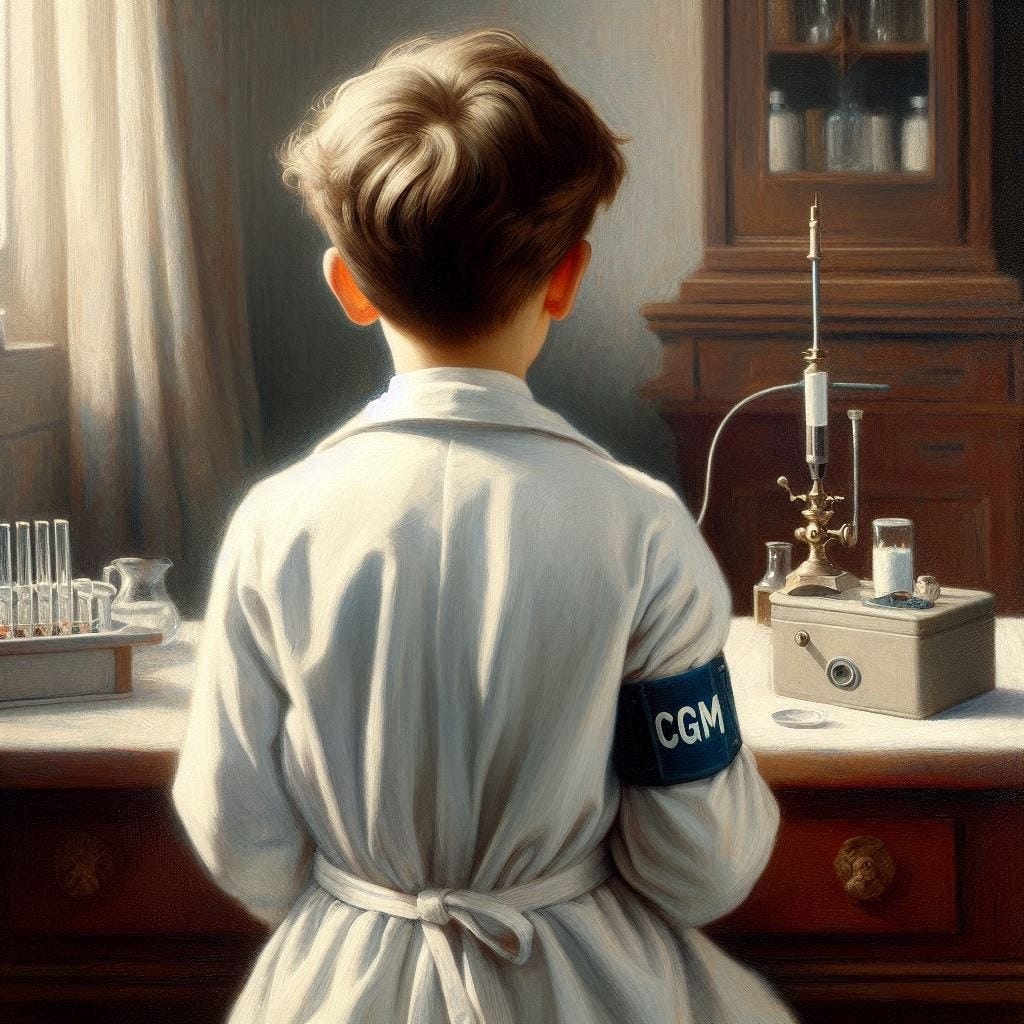Personal Science Week - 240829
Weekly updates for personal scientists
Our definition of “personal science” is pretty broad—it’s anyone who uses science for personal reasons. But some of us are professionals too.
This week we’ll offload a bunch of interesting links that think might be interesting to fellow personal scientists, whether you’re a professional or not.
CGMs are more useful than you think
For most people, an annual physical exam is the only time they'll do a clinical fasting blood glucose test, which is the best way to detect signs of diabetes. Unfortunately, something like 40% of people whose levels appear normal on that one test may actually be in danger of prediabetes. That's what Eran Segal's new CGM paper shows, based on his study of thousands of people wearing CGMs (the data is all available at The Human Phenotype Project)
By the way, that same team (from the Weizmann Institute—the people who originally did the research that led to microbiome testing company DayTwo) recently published a fascinating CGM project of interest to anyone working on AI. They used the same "transformer" algorithms as ChatGPT, but instead of training on text they trained it on serial CGM data. The resulting model is able to predict glucose responses from different food types, plus various pathologies. Read the post on X for more details.
More on Sleep
I'm not sure what to think about Sleepio, the “sleep improvement app” from Big Health Ltd. It was recently approved by the FDA as a prescription digital health treatment for insomnia, so the program is now eligible for reimbursement by many insurance programs.
It’s based on cognitive behavior therapy, a well-proven psychological treatment protocol that helps “reprogram” your mind to handle difficult cognitive or behavioral issues with a slow, systematic process of adjustment. Since many sleep problems are at least partly psychological, this is one non-pharmaceutical way to get results.
There are iPhone and Android versions.
Obviously the “FDA” stamp gives the app far more credibility than its competitors, so it will cost more. It will also conform to FDA time frames, meaning that improvements and upgrades will take longer. If you think “FDA” also means “it works” and “it’s safe”, you'll probably be disappointed if you compare your results to other, cheaper and more innovative apps. The kind of sleep issues that can be solved without drugs are at least partly psychological, which means they work if you think they work. For many people, the FDA certification — perhaps more than the app itself—will be offer the placebo effect needed to overcome sleep issues. If so, then it's a success. A bit expensive, but worth it.
On the other hand, I think of many other worthy sleep remedies that work as well or even better than this app. But because other developers didn’t have the budget for a time-consuming FDA approval process, we'll never know.
Brain Stimulation
An Open Letter Concerning Do-It-Yourself Users of Transcranial Direct Current Stimulation is a 2016 summary by some doctors with experience in brain stimulation who point out many of the dangers, including that effects last longer than you think and that different levels of current have significantly different effects.
Ancient DNA
From Nature: From Vikings to Beethoven: what your DNA says about your ancient relatives
Genomes have been sequenced for more than 10,000 ancient individuals, making it possible now to find ancestries back further than most historians ever dreamed. Are you related to Beethoven? Sitting Bull? Genghis Khan? It’s now becoming possible to find out.
But be careful how much you read into ancestry results from more than a few hundred years ago. Any individual from the 1400s could have more than 1 million descendants by now (twenty generations = 2^20 = 1,048,576)
Designers and personal science
Personal scientists are of course interested in biology, especially the human kind. Making biology personal often means good design, so we were encouraged to see the Biocreative Index :
The Biocreative Index is a directory of people working at the intersection of biology and creative disciplines. We are the artists who predict what will be possible with synthetic biology. The scientists turned creatives who lead branding, marketing, and communications at startups around the world. We are designers inspired by nature. Writers, strategists, and creative directors telling stories about the work happening in labs. Educators and community organizers training up the next generations of scientists to innovate differently. Social scientists thinking critically about the ethics of our technology and implementing policy around how to design with biology well.
You can sign up too!
About Personal Science
For the past several months I’ve been on a deep dive on the philosophy of science, mostly dusting off some ideas I first encountered while studying artificial intelligence in college decades ago. Although it directly relates to personal science (like everything else I do!), much of it involves technical details that won't be of interest to casual readers, so I've included it in this week's Unpopular Science post, normally sent only to paid subscribers. We hate burdening regular readers more than once a week—but an unpaywalled copy of this week's post is free to access directly. Click here.
This is another reminder that I co-write an additional weekly post, InvestAI, with my grad school friend Sami Karam. We discuss the latest, most interesting, and most practical ideas around artificial intelligence at The Wednesday Letter Substack. Please subscribe!
As always, we appreciate reader feedback on other topics you'd like to discuss. Please let us know





Sleepio has been up and running for over a decade, so I imagine it's a pretty stable service at this point. They certainly had enough time to collect sufficient data on efficacy to satisfy the FDA (and health insurance companies), so presumably their service can now be prescribed by doctors, which is great. But if you are looking for something more cutting edge, there may be better options.